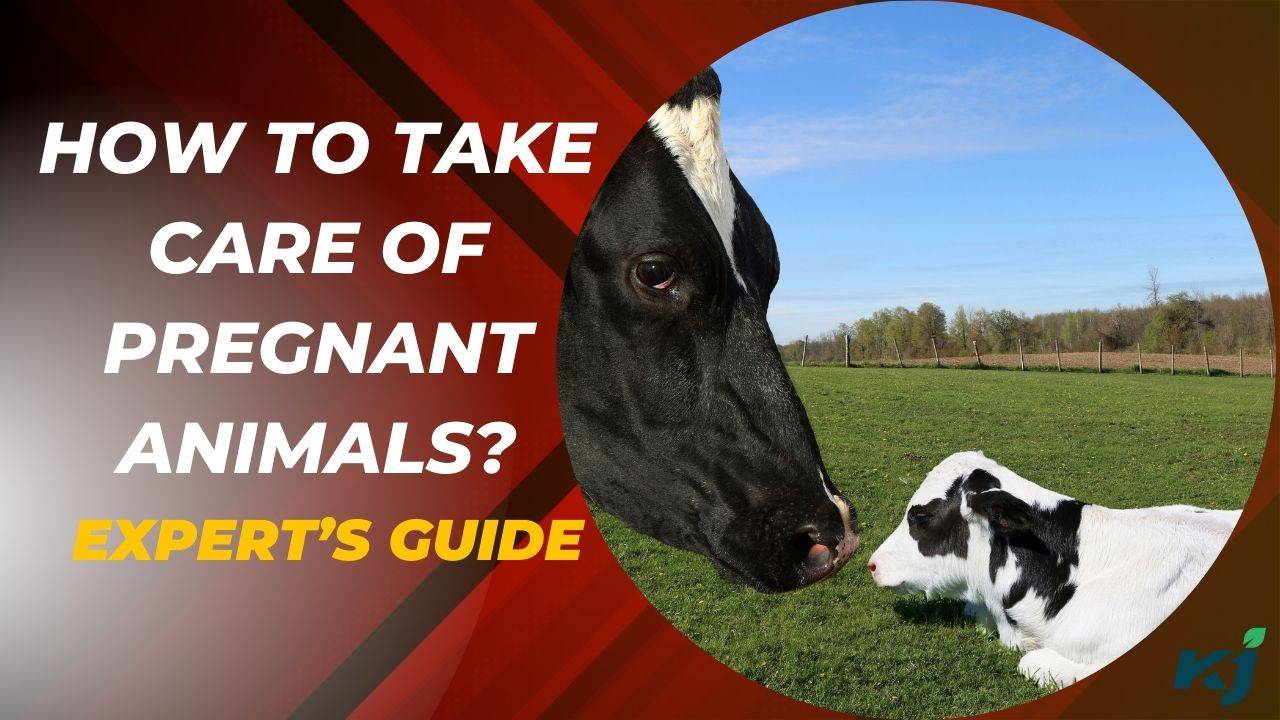
Taking care of pregnant animals is a crucial responsibility for any pet owner, farmer, or animal enthusiast. Proper care during pregnancy ensures the health and well-being of both the mother and her offspring. Whether you are dealing with dogs, cats, livestock, or any other pregnant animals, it becomes important to pay extra attention during pregnancy and after-birth care as well. If you are the one looking for “How To Take Care Of Pregnant Animals?” then this expert guide will provide you with comprehensive tips on how to provide the best care possible.
Expert Guide on How to Take Care of Pregnant Animals
-
Veterinary Care:
-
Schedule regular check-ups with a veterinarian. Early prenatal care can help detect any potential issues and establish a healthy baseline for the pregnant animal.
-
Discuss vaccination and deworming schedules with your vet, as pregnant animals may require specific vaccines and parasite control measures.
-
Ensure that your veterinarian is aware of the animal's pregnancy, as some medications and treatments may need to be adjusted during this time.
-
Nutrition:
-
Pregnant animals require a balanced diet with the appropriate nutrients to support fetal development. Consult your veterinarian or an animal nutritionist for specific dietary recommendations.
-
Feed high-quality, commercial pet food or appropriate livestock feed designed for pregnant animals. Avoid feeding excessive amounts of treats or human food.
-
Increase food intake gradually as the pregnancy progresses, following your vet's guidance. Overfeeding can lead to obesity, which may complicate the pregnancy.
|
Green Fodder |
15-20 kg |
|
Dry Fodder |
4-5 kg |
|
Compound Cattle Feed |
2-3 kg |
|
Oil Cake |
1 kg |
|
Mineral Mixture |
50 g |
|
Salt |
30 g |
-
Hydration:
-
Ensure that pregnant animals have access to clean, fresh water at all times. Proper hydration is essential for the development of the fetus and overall health.
-
Exercise and Activity:
Provide pregnant animals with regular exercise, but avoid excessive strenuous activity or jumping, especially for smaller animals like dogs and cats. Gentle walks and playtime are beneficial.
-
Shelter and Comfort:
-
Create a safe and comfortable environment for the pregnant animal to rest and nest. Ensure that the area is clean, dry, and free from drafts.
-
Consider providing a designated nesting area or box where the animal can give birth and care for her offspring.
-
Stress Reduction:
Minimize stressors in the pregnant animal's environment. Changes in routine, introduction of new animals, or loud noises can stress the mother, which may negatively impact the pregnancy.
-
Observation:
Monitor the pregnant animal closely for any signs of distress, illness, or complications. Look out for abnormal behaviors, appetite changes, or discharge.
-
Preparing for Birth:
-
Learn about the specific signs of labour and birth for the species you are dealing with. Be prepared to assist if necessary, but avoid unnecessary interference.
-
Have necessary supplies on hand, such as clean towels, heating pads, and a contact number for your veterinarian in case of emergencies.
-
Nutritional Care After Calving:
Right after giving birth, cows and buffaloes often experience a reduced appetite due to the stress of calving, leading to a decreased intake of necessary nutrients. To address this, it's advisable to provide these animals with a gentle, appealing, and mild laxative diet for a period of 2 to 3 days following calving. This diet should consist of warm rice gruel, boiled rice or wheat bran, boiled millet or wheat blended with edible oil, bypass fat, Jaggery, Soya, Asafoetida, Methi, Black Cumin, ginger, and similar components.
This regimen not only helps in the prompt expulsion of the placenta but also aids in the recovery of the animal. Additionally, the cow or buffalo should have access to fresh tender green fodder and clean drinking water, while avoiding hot water. It is essential to ensure that milking cows have a constant supply of clean water and receive the necessary quantity of Area Specific Mineral Mixture on a daily basis.
-
Social Support:
Provide emotional support for the pregnant animal. Spend time with her, offer gentle petting, and keep her company to reduce stress.
Taking care of pregnant animals requires a combination of proper nutrition, veterinary care, and a supportive environment. By following these guidelines and consulting with your veterinarian, you can ensure a healthy pregnancy and a smooth transition into motherhood for your animal. Remember that each species has its unique needs, so always seek species-specific advice when caring for pregnant animals.









